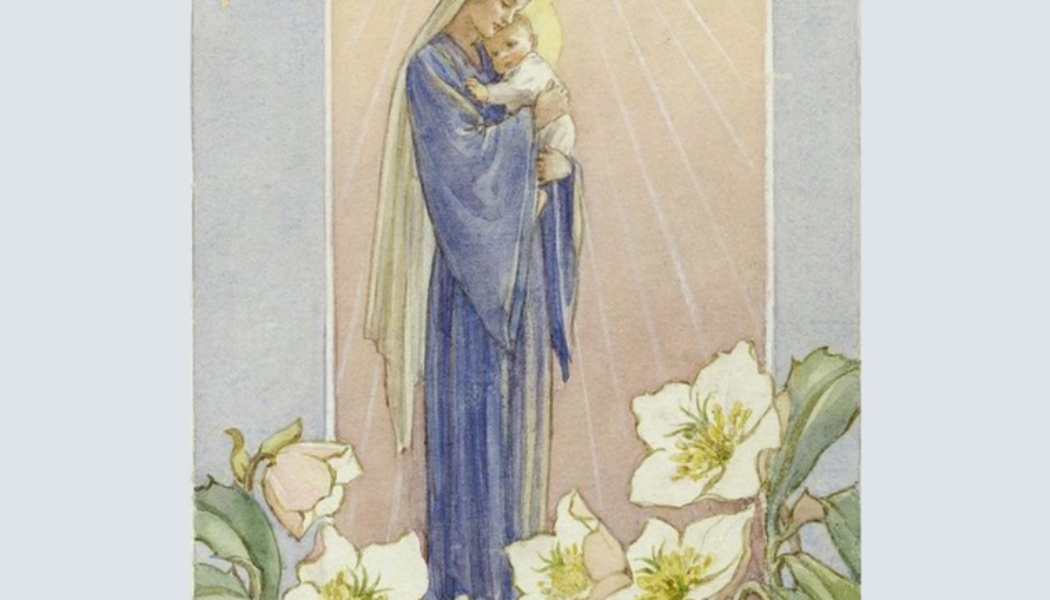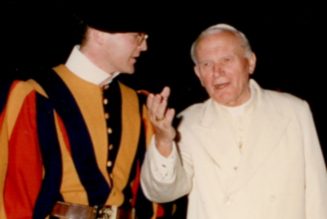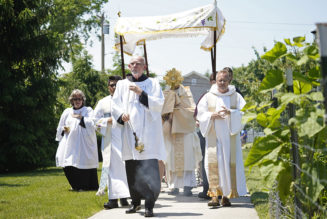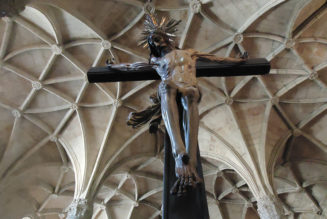
User’s Guide to the Solemnity of the Blessed Virgin Mary, the Mother of God
Sunday, Jan. 1, is the Octave Day of Christmas, Solemnity of the Blessed Virgin Mary, the Mother of God.
Mass readings: Numbers 6:22-27; Psalm 67:2-3, 5, 6, 8; Galatians 4:4-7; Luke 2:16-21.
This feast day, of Jan. 1, is a very complex tapestry, both culturally and liturgically. It is the Solemnity of Mary, Mother of God, but we also recognize the Octave of Christmas, the Circumcision of the Lord and the Holy Name of Jesus. Perhaps we can use the second reading by St. Paul to the Galatians as a way to weave through some of the many details. We can look at it in three parts.
The Chronology of Our Celebration
The text from St. Paul’s Letter to the Galatians says, “When the fullness of time had come …” Most people, both in the wider culture and in the Church, are going about today saying, “Happy new year!” But it is not simply 2023; it is 2023 Anno Domini (A.D. = the Year of Our Lord). Even the most secular and unbelieving of people in the Western world locate their place in time in relation to Jesus Christ.
If it is true, why is Christmas Day not also New Year’s Day? In the Church, and stretching back into Jewish times, it was customary to celebrate the high feasts of faith over the period of a week, an “octave.” Sunday, Jan. 1, is the eighth day of Christmas and completes what is really one long day. Now our calendars go from A.D. 2022 to 2023.
The Content of Our Celebration
St. Paul goes on to say, “God sent forth his son born of a woman, born under the Law.” In accordance with the Law, Joseph and Mary brought Jesus to be circumcised. It was also the day when his name was spoken for the first time: “Jesus.”
This is also the Solemnity of Mary, Mother of God, the most ancient title for this feast day, honoring Mary as “Mother of God.” It is a title that she has because of the Church’s insistence that Jesus cannot be divided up into two different people, and we cannot say Mary gives birth to one Jesus but not “the other.” There is only one Jesus, though he has two natures, human and divine.
The Consolation of Our Celebration
St. Paul goes on to say, “Born under the law to ransom those under the law so that we might receive adoption as sons. As proof that you are sons, God sent the Spirit of his Son in our hearts, crying out, ‘Abba, Father!’ So you are no longer a slave, but a son, and, if a son, also an heir through God.”
Note three things about this text:
A. Our Adoption
In the Incarnation, Jesus joins the human family; in the covenant, he joins our family of faith to himself, and thereby we become adopted as sons and daughters.
B. Our Acclamation
The Spirit within us cries, “Abba!” Abba is the family term for “father.” It would be a daring thing for us to call God “Dad” unless we were permitted to do so and instructed to do so by Christ. It is not merely saying the word, but is an inner movement of the Holy Spirit, wherein we experience a deep affection for God the Father.
C. Our Advancement
Notice that St. Paul then speaks of how we have moved from being a son (and daughter) to being an heir. As sons and daughters in the Son, we are heirs with Jesus to the Kingdom!
And thus we have a very rich tapestry on this New Year’s Day — not a bad way to start the new year, reminded of God’s incredible love for us, of his rich blessings and promises.
Join Our Telegram Group : Salvation & Prosperity









